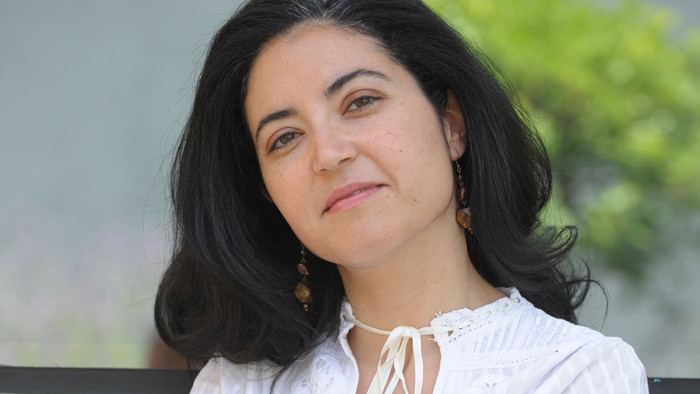Women in Business — Rachida Justo

Simply sign up to the Business education myFT Digest -- delivered directly to your inbox.
Rachida Justo has been professor of entrepreneurial management and social entrepreneurship at Spain’s IE Business School since 2007. She was born in the Dominican Republic but spent significant parts of her childhood in Tunisia, where she completed her bachelors degree in Business Administration at the Institut De Hautes Etudes Commerciales, and France.
She obtained a PhD in Economics and Business Administration, majoring in entrepreneurship, at Spain’s Universidad Autónoma de Madrid.
Her most recent published research analysed data on start-ups founded by women, challenging statistics showing that such businesses are more likely to fail by arguing that female entrepreneurs are actually more likely than males to exit their companies voluntarily.
1. What is an average day at work like?
I am lucky to have a job where I can spend a full day immersed in academic research, dealing with complex econometric models and entrepreneurship theories. The following day, I jump on a plane to teach a female leadership program at a US-based company and finish my trip in Brussels to discuss at the European Commission new recommended policies to foster social entrepreneurship.
IE demands from its professors to be what our dean calls “kangaroos”, meaning that we need to be not only good teachers but also good researchers, capable of generating relevant knowledge for society, and demonstrate experience in business management. Fulfilling these requirements is challenging and wearing several hats at the same time is not easy. But I love it because it constantly forces me to push my own boundaries.
2. What do you like about working at IE Business School?
The cultural diversity and openness to change of IE Business School provides me with an ideal environment where I can develop my potential to its fullest extent. It is one of the few organisations I know where your cultural, religious or ideological background doesn’t matter.
3. What is your favourite business book?
The blue sweater, from Jackeline Novogratz. It is not a business book in the traditional sense, as it narrates Ms Novogratz’s personal and professional journey and how she launched the Acumen Fund, a non-profit that raises charitable donations to invest in social enterprises.
However, it includes several quotes that have interesting implications for business. For example, she argues that institutions are key in reminding us who we are meant to be and how we are expected to behave as community members and citizens. If we understand the concept of “institutions” in the broad sense, then we can see the fundamental role that business schools have in shaping the mindset of future entrepreneurs and managers and in providing them with the appropriate incentives to do the right thing through business.
4. How would you describe the gender dynamics in Spanish society?
In general I think they are the same you can find in any western country: no real discrimination at the institutional level but at the individual level, depending on the person you are interacting with, there might be some strong, generally unconscious, gender biases.
5. How do you deal with male dominated environments?
My motto is you can’t win the game if you play by someone else’s rule. I think that being a woman can be a competitive advantage in business and I try to leverage it.
6. What has been your best professional decision?
My best decision has been to stay true to myself and follow my passion. This might sound obvious but when I first started specialising in teaching and investigating the field of social and female entrepreneurship I was really going against the tide. At the time these were considered as marginal fields. I even had colleagues teasing me in a friendly way about my interest in what they called “lost causes”. But I knew I couldn’t work relentlessly on issues that I didn’t feel strongly about. In hindsight, I know it was an excellent decision. I have positioned myself as an expert on topics that are not only extremely popular but also socially important.
7. And your worst?
The world of academia is mainly based on trust and I tend to be a bit unsuspicious, which has led me to make some bad professional decisions by not choosing the appropriate collaborators. But then again, as we say in French, I guess one has “les défauts de ses qualities” (the shortcomings that correspond to one’s virtues). So I don’t mind keeping on making those mistakes from time to time because I think that the rewards from trusting people are in general higher than the risk it entails.
8. What would be your career plan B?
Launch my own social enterprise.
9. Which digital media do you use or would recommend for businesswomen?
I am a fan of Twitter because it keeps me updated on important professional issues. I also think LinkedIn is an amazing networking tool but admit I don’t have enough time to leverage it to the full. I can’t think of any app that is specifically targeted at businesswomen, but would love to have one that helps me cope with work-life balance in an efficient way.
10. If you could do it all again, what would you do differently?
I try to avoid looking back. This is probably why I have very few regrets. I prefer to think about what I can do in the future.
Comments